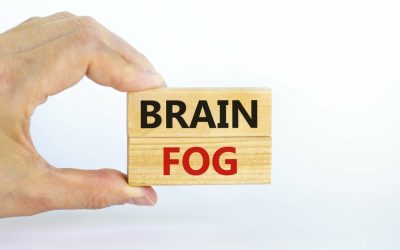The book provides practical tips for working each step while maintaining the spiritual foundation that makes AA effective. Annie’s book is so important (and she’s a wonderful human to boot). She brilliantly weaves psychological, neurological, cultural, social and industry factors with her own journey. Without scare tactics, pain, or rules, she offers a strategy to give you freedom from alcohol. By addressing causes rather than symptoms, it is framed as a permanent solution rather than lifetime struggle. It removes the psychological dependence; allowing you to easily drink less (or stop drinking entirely).
Pooley walks us through a year of her life spent battling alcohol addiction and a recent breast cancer diagnosis, two battles — spoiler alert! Alongside this deeply personal story, she includes scientific research and a wealth of advice, including how to recognize if you have alcohol use disorder (AUD) and how to navigate the social pressures that come with a life of sobriety. When I first read this book over ten years ago it felt like I was reading my own journal (if my journal was written in incredibly eloquent prose). I almost https://www.findthejobinamerica.com/how-to-host-an-unforgettable-bbq-party-glass/ wanted to snap it shut, but instead finished it in one day and have read it at least three more times since. Knapp so perfectly describes the emotional landscape of addiction, and as a literary study it’s as perfect a memoir as I’ve ever read. I often think about what it took to publish this when she did, in the 90’s, as a female and a journalist in Boston.
Books with a Scientific and Guide-like Approach
He previously said he spent his 50s apologizing to those he hurt. During the 1980s and 1990s, he developed an insatiable appetite for drugs, alcohol and sex. He grew reliant on cocaine and turned to liquor to calm his stutter. At one point, Sheen recalled how he was cut off by the cartel because they suspected he was dealing.
Best Sober Living Books
- Her emphasis on self-care and stress management provides practical tools for maintaining the spiritual condition that Step 11 aims to develop, incorporating insights from present moment awareness similar to teachings by Eckhart Tolle.
- Unlike the love story narratives found in books like “The Sober Diaries” by Clare Pooley, Victoria’s account focuses more on the practical realities of rebuilding your own life without alcohol.
- Eventually my faith brought me to my knees and I began my journey of sobriety after having a spiritual experience.
It’s designed to be a fundamental treatise on how to achieve recovery from alcohol addiction. I really liked this book because it focuses a lot on her spiritual crisis and how it related to her alcoholism. She is a Christian, as am I, and I often battled in my head with being a Christian and being an alcoholic. Eventually my faith brought me to my knees and I began my journey of sobriety after having a spiritual experience. The book acknowledges that not everyone’s recovery journey will look the same—some may benefit from group therapy, others from individual counseling, and many from a combination of approaches.
We Are the Luckiest: The Surprising Magic of a Sober Life by Laura McKowen
While there are countless paid resources out there, finding reliable and free addiction workbooks can be a challenge. In this post, I’ve rounded up a collection of free addiction resources—workbooks you can access and print without a fee. Each of these workbooks is designed to offer tools, strategies, and reflections to support your recovery or your work as a helper. Smashed was a ground breaking novel, shocking people with the brazenly delivered truths experienced by young women all over the drug addiction treatment country. Zailckas’ story is similar to the millions of youths who engage in binge drinking at dangerously young age.
Mutual Fund and ETF data provided by Refinitiv Lipper. It’s a story about finding my voice, and I’m interested in hearing yours. I don’t want to see how you made over your wardrobe or house.

And that’s not to say that it isn’t introspective (it is!), but it’s also funny and more lighthearted. In a brilliant narrative style, she constantly flips back and forth between her personal story and the history of the alcoholic creatives who came before her, their lives intersecting in fascinating ways. The insights you pick up along the way are so powerful. Carr understands addiction and the personal destruction that leads you to it. He made me think about what I was doing in ways nobody else had done before. I would not classify David Carr as a high-functioning alcoholic or drug user.
Her emphasis on self-care and stress management provides practical tools for maintaining the spiritual condition that Step 11 aims to develop, incorporating insights from present moment awareness similar to teachings by Eckhart Tolle. What sets this honest memoir apart is its recognition that couple relationships often become centered around drinking, and that sobriety requires rebuilding intimacy, communication, and shared activities from the ground up. We Are the Luckiest, by Laura McKowen, is one of those vulnerable and personal stories that focuses both on what it was like to suffer and what it was like to get better. I love her message that it is actually this struggle that makes us great; it’s nothing to be ashamed of and opens our lives and hearts to bigger and better possibilities.
She takes the reader on a journey through her drinking career, eventually leading her down a binge-drinking, blackout spiral that takes a toll on every aspect of her life. That’s actually a perfect segue into what sets Jamison’s book apart from most recovery memoirs and books about addiction. For my fellow high-functioning-alcoholics and gray area drinkers out there, if you keep bouncing back and forth between whether or not you really have a problem, read this book. Finally, at the behest of his coworkers and boss, he ends up in a rehab that specifically caters to gay and lesbian patients. Once his 30 days are up, he has to figure out how to return to his New York City lifestyle sans alcohol.

This Naked Mind by Annie Grace
I started reading addiction memoirs in college, well before I admitted to having an alcohol use disorder. These books, along with works by best alcohol recovery books authors like Holly Whitaker, Caroline Knapp, and Laura McCowen, offer different approaches to sobriety that can complement 12-step work. Victoria’s journey toward believing in something greater than herself (Step 2) unfolds through her work with a psychologist and her growing connection to the sober curious community. The book’s approach to Steps 8 and 9 (making amends) is particularly valuable for couples, as it addresses the complex dynamics of making amends to someone with whom you’re in active recovery. Dr. Nowinski provides concrete guidance on timing, approach, and maintaining boundaries while still being accountable for past harm. He shows how couples can work Step 10 (continued personal inventory) together, creating daily check-ins that promote honesty without becoming group therapy sessions.


